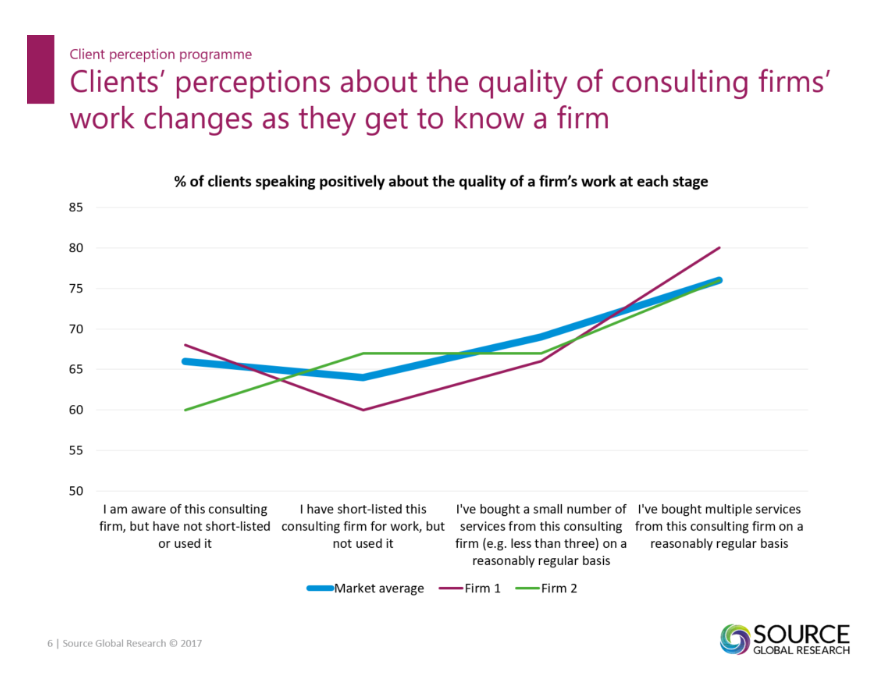Posted , in Featured

in Instinct
All of our research on the consulting industry at the moment points to a slowdown in the rate of growth in consulting. There’s still a lot of investment and activity among clients: 93% say they’re looking to increase productivity and efficiency; 92% are investing in digital transformation. But the proportion of people who say that their expenditure on consulting services will increase in the next year has fallen from 72% last year to 55%.

One of the truisms of consulting is that everyone benefits from a growing market—that a rising tide lifts all boats. But a market that’s growing at a lower rate than in previous years feels much less benign because the change in tempo is usually unevenly distributed—some boats stay still or sink, while others may do better than ever. Whether your consulting firm is a rising boat, or is becalmed, watching other boats around you rise more quickly, now is a good moment to make sure that your strategy is—well—water-tight.
Sadly, that’s not always the case…
When James Cameron started filming Avatar, he had T-shirts made for the film crew with the words “hope is not a strategy, luck is not a factor, and fear is not an option”. Yet, a lot of the business plans we see from consulting firms depend heavily on one of these, and sometimes all three:
We’ve been writing a lot in this blog about instinct recently. It’s instinct that makes us hope, encourages us to depend on luck, and makes us frightened. And it’s not the basis for a good strategy.